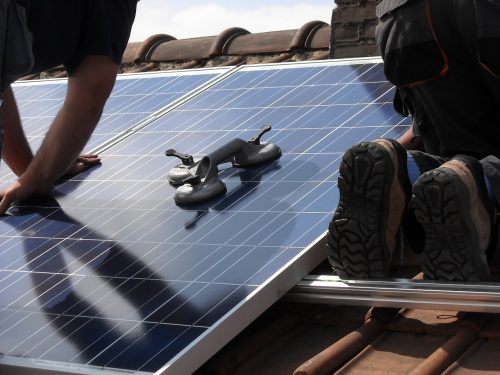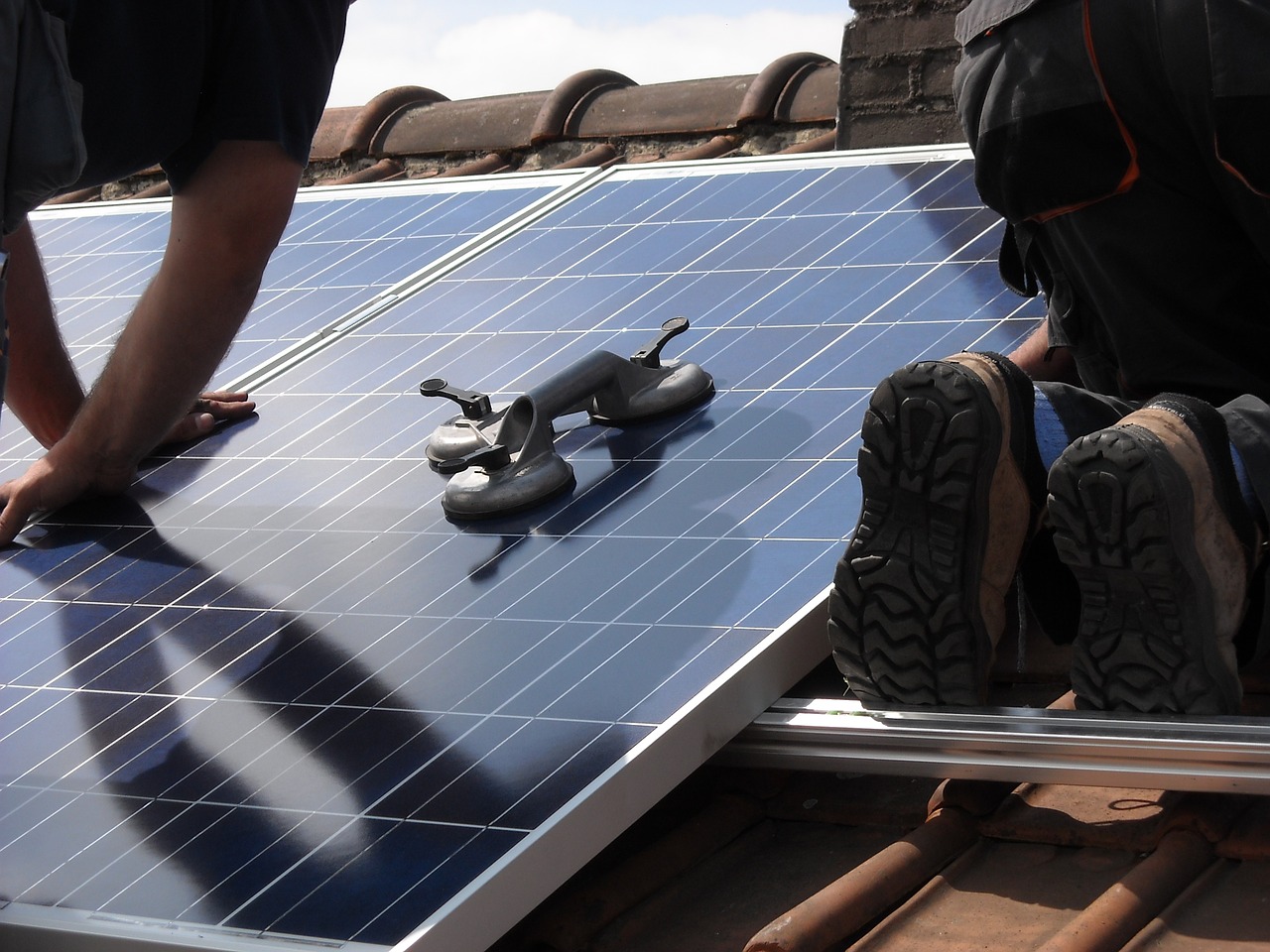Small businesses are key to helping the United Kingdom close its carbon gap and become more self-sufficient in energy supply.
So says the Federation for Small Businesses (FSB), whose new report urges the government to make it easier and more attractive for small firms to contribute to green energy.
 Over one in ten small businesses in the survey already generate their own electricity (the vast majority from solar panels). Image: pixabay-944002
Over one in ten small businesses in the survey already generate their own electricity (the vast majority from solar panels). Image: pixabay-944002
The not-for-profit group calls on the government to set out a new carbon plan for the UK that includes specific strategies – such as on microgeneration and energy efficiency – for the small business sector.
It warns that without help from the country’s 5.5 million small firms – which can be achieved through improved incentives and fewer barriers – the UK will likely fail to meet its climate obligations and close its carbon gap.
Martin McTague, FSB’s director of policy says in the report’s foreword:
“The way the UK generates, distributes and uses energy is facing the greatest transformation since the industrial revolution.”
All sectors must make reductions to close UK’s carbon gap
In its report to parliament in June 2016, the Committee on Climate Change says the UK has made progress in reducing emissions. In 2015, they fell 3 percent, and they are now 38 percent below 1990 levels.
However, much of the progress has been in the energy sector, and the Committee says there is now a need for more broadly based reductions across all sectors of the economy.
The backdrop is the Paris Agreement of December 2015, where the countries of the world agreed to increase the push to tackle climate change. In particular, they agreed to limit the rise in global temperature to well below 2°C, with efforts to hold it to 1.5°C.
In response to this, the UK has its own targets, enshrined in UK legislation – the Climate Change Act. This commits the UK to reduce CO2 emissions by 80 percent (compared to 1990 levels) by 2050.
UK needs to move to more distributed energy infrastructure
The Committee on Climate Change says the Brexit referendum result, where the majority of UK voters took the decision to leave the EU, does not change the commitment, but it may affect options for doing so.
The FSB report makes the point – as others have – that to close this challenging carbon gap, the UK needs to move toward a more distributed energy system.
The transformation will require “an extensive, and expensive, overhaul of the UK’s energy infrastructure, the costs of which will fall on tax and bill payers,” it notes.
In reshaping this energy landscape, the government faces the “energy trilemma” of needing to balance security, affordability, and sustainability, says McTague.
Small business relationship with energy sector is complex and varied
By their nature, small businesses have a complex and varied relationship with the energy sector, notes the report. They occupy multiple stakeholder roles – not only do they consume energy, they generate and supply it, they invest in it, and they provide services to the energy industry.
The report describes results of surveys of FSB members about their views on energy infrastructure investment and energy efficiency and suggests how the government could leverage the small business sector to help the UK close its carbon gap.
The following highlight some of the key results of the surveys:
– 86 percent of small businesses surveyed believe the UK is too reliant on imported energy
– 61 percent say energy is a significant cost in their business
– 60 percent say security of supply is their top energy priority
– 12 percent already generate their own electricity (the vast majority from solar panels)
– 41 percent small businesses surveyed believe renewable and low carbon energy will become cheaper than fossil fuel; this compares with only 23 percent who believe it will never be cheaper
– 27 percent believe a low-carbon economy will generate more opportunities than threats for their businesses; this compares with just 14 percent who believe the opposite
– 33 percent believe energy efficiency savings will offset increasing energy costs in their businesses; this compares with only 23 percent who do not think this will be the case
Key recommendations
The FSB says the UK government needs a strong policy that “provides confidence and security to investors in new energy technologies, including energy generation, storage, and efficiency.”
The policies must clearly promote investment in the right places, for instance in the form of subsidies and tax relief.
The FSB also wants to see more efforts to push energy reduction – which they note is “the single best way that that small businesses can save money on their bills.”
In order to make such savings, small businesses need support and information, says the FSB. More needs to be done to empower them as customers, to help them understand and choose what they pay for, where to find the best deals, how to save energy, and know how their energy is generated.
Small businesses are also suppliers of products and services to the energy sector. However, the FSB notes that across the UK, the way energy contracts are managed tends to favour larger suppliers.
“Supply chain processes can be overly complicated and lengthy, often with complex prequalification requirements,” notes the report as it explains how small suppliers – without the time and resources of larger organizations – often find themselves excluded.
The FSB wants to see the energy companies setting out their criteria in procurement advertisements in a way that allows small firms to quickly assess whether it is worth them pursuing the opportunities.
Poor payment practices also “continue to be a massive problem for small suppliers,” notes the FSB, who wants to see specific payment policies for small businesses. It suggests new and emerging industries can set the example and enforce them throughout their supply chains.
Mike Cherry, FSB National Chairman, concludes:
“Many small businesses are willing and capable of becoming more energy efficient, and even generating energy. With the right support, they can play a critical role in helping the UK reach its green targets and shore up supply.”

